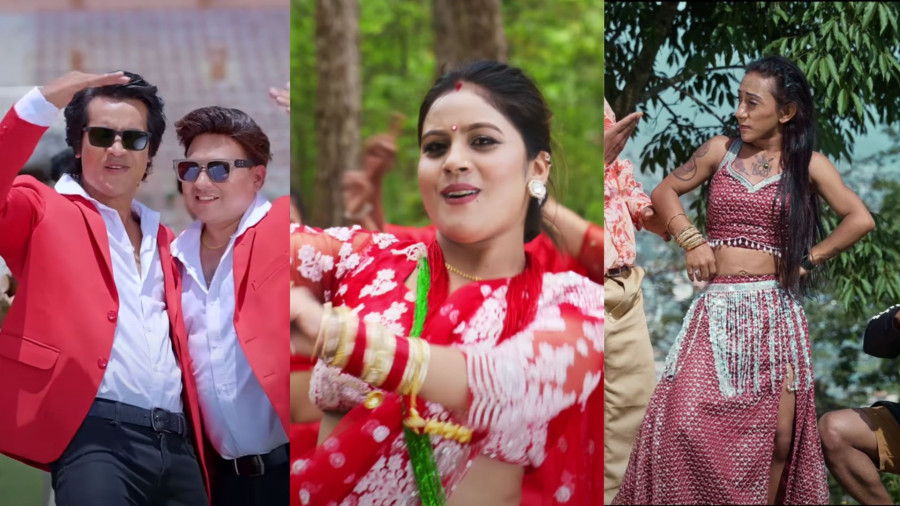Culture & Lifestyle
Folk music organisations demand ban on ‘obscene’ songs
National Folk and Duet Song Academy and National Folk Journalists Nepal filed complaints.
Post Report
Two organisations dedicated to preserving Nepali folk music have lodged complaints with the Cyber Bureau of Nepal Police, demanding swift action against songs that allegedly distort and degrade the country’s folk traditions.
Representatives from the National Folk and Duet Song Academy and National Folk Journalists Nepal filed petitions on Sunday, demanding that five songs be investigated for containing obscene language, offensive visuals and dance steps that they argue disrupt social harmony.
The complaints name several songs, including ‘Gai Kalo’ sung by Dhruv Pun and Chandra Kumari Shahi, ‘Salla Damarma’ by Rajkumar Oli, Asmita Thapa, and Lakshmi Thapa, and ‘Luki Luki’ by Ramji Khand and Shantishree Pariyar. The complaint also alleges that the gestures used by artists Tejendra Pariyar, Ritu Basnet, and Nikisha Shrestha in ‘Gai Kalo’ are obscene.
Vice President of National Folk Journalists Nepal, Hari Prasad Dulal, said, “Our organisation’s mission is to protect and promote Nepali folk songs, offering society high-quality, tradition-based music. We took this step to awaken the nation to the negativity spreading in the name of folk music.”
“Festivals like Teej and the folk songs associated with them hold deep cultural significance. While these controversial songs may attract views on digital platforms, they leave a negative impression on the younger generation,” he added.
On Thursday, representatives from both organisations met Home Minister Ramesh Lekhak to draw his attention to the issue. During the meeting, the minister assured them the government would take strong action against songs containing obscenity or hate speech. He had earlier directed the Cyber Bureau to appoint a focal person to investigate cyber crimes related to the arts sector.
“If this trend persists, the younger generation might fail to recognise the value and beauty of our folk heritage. As a nation, we must stand together to promote and safeguard authentic folk music,” said Dulal.




 9.7°C Kathmandu
9.7°C Kathmandu
.jpg&w=200&height=120)













